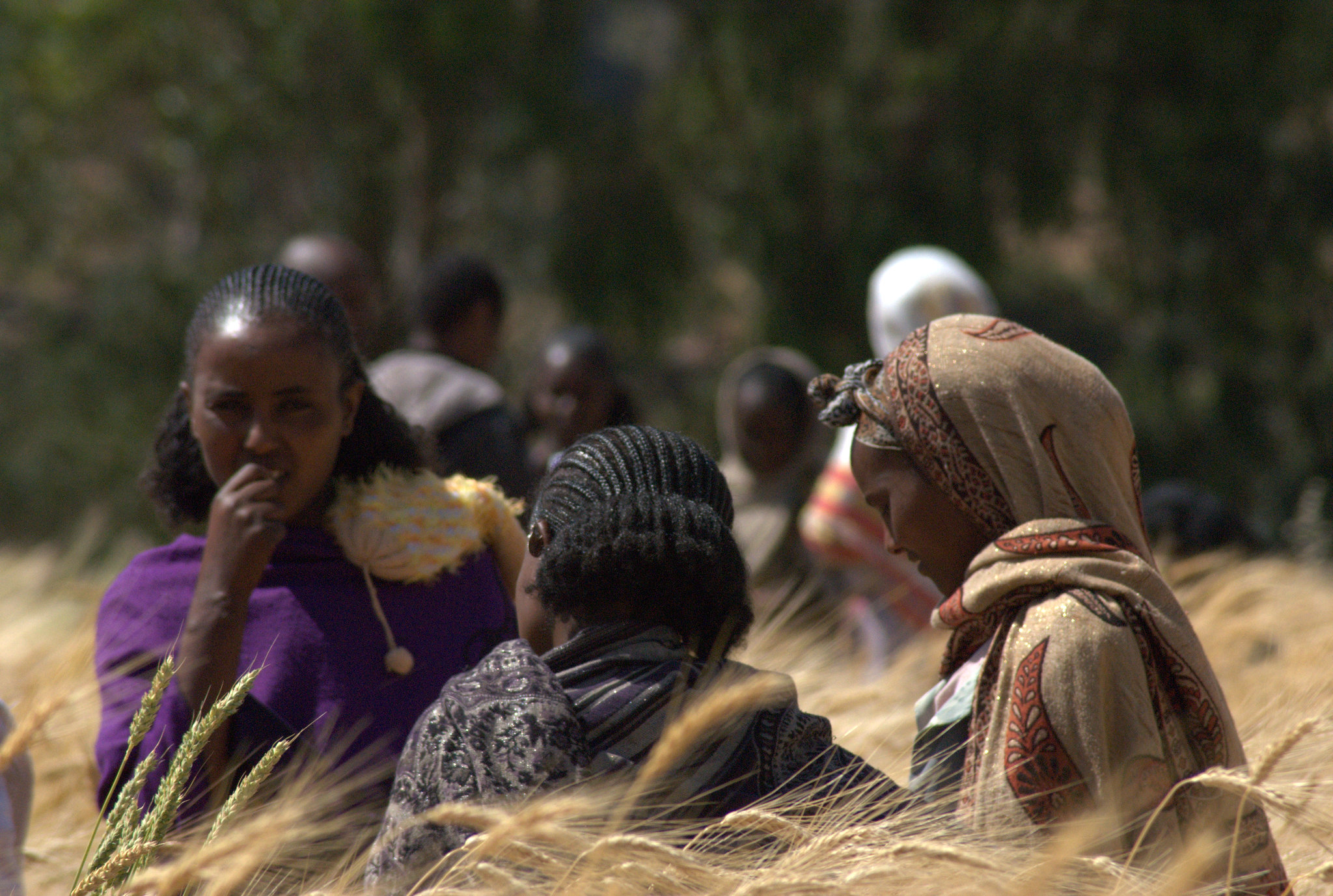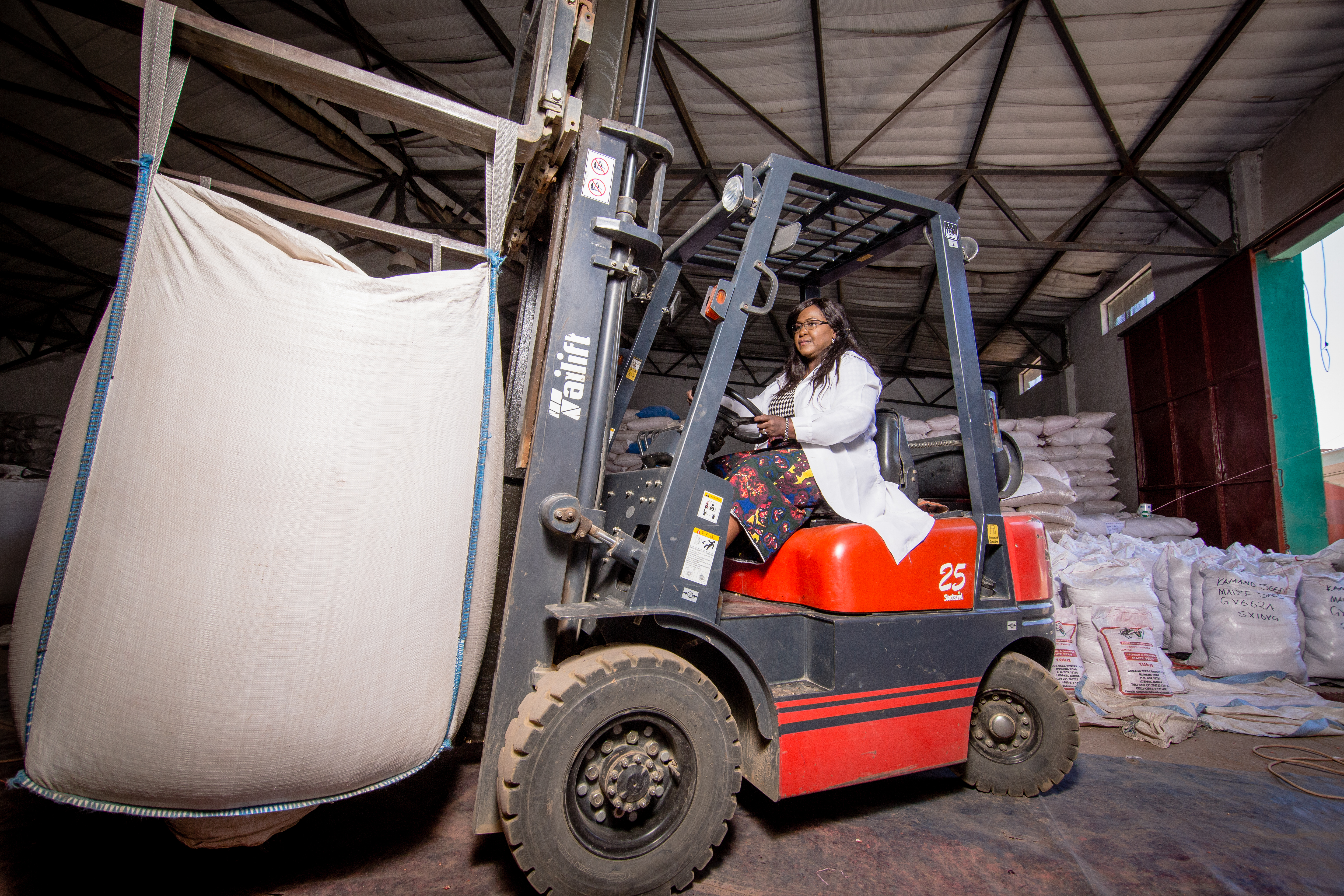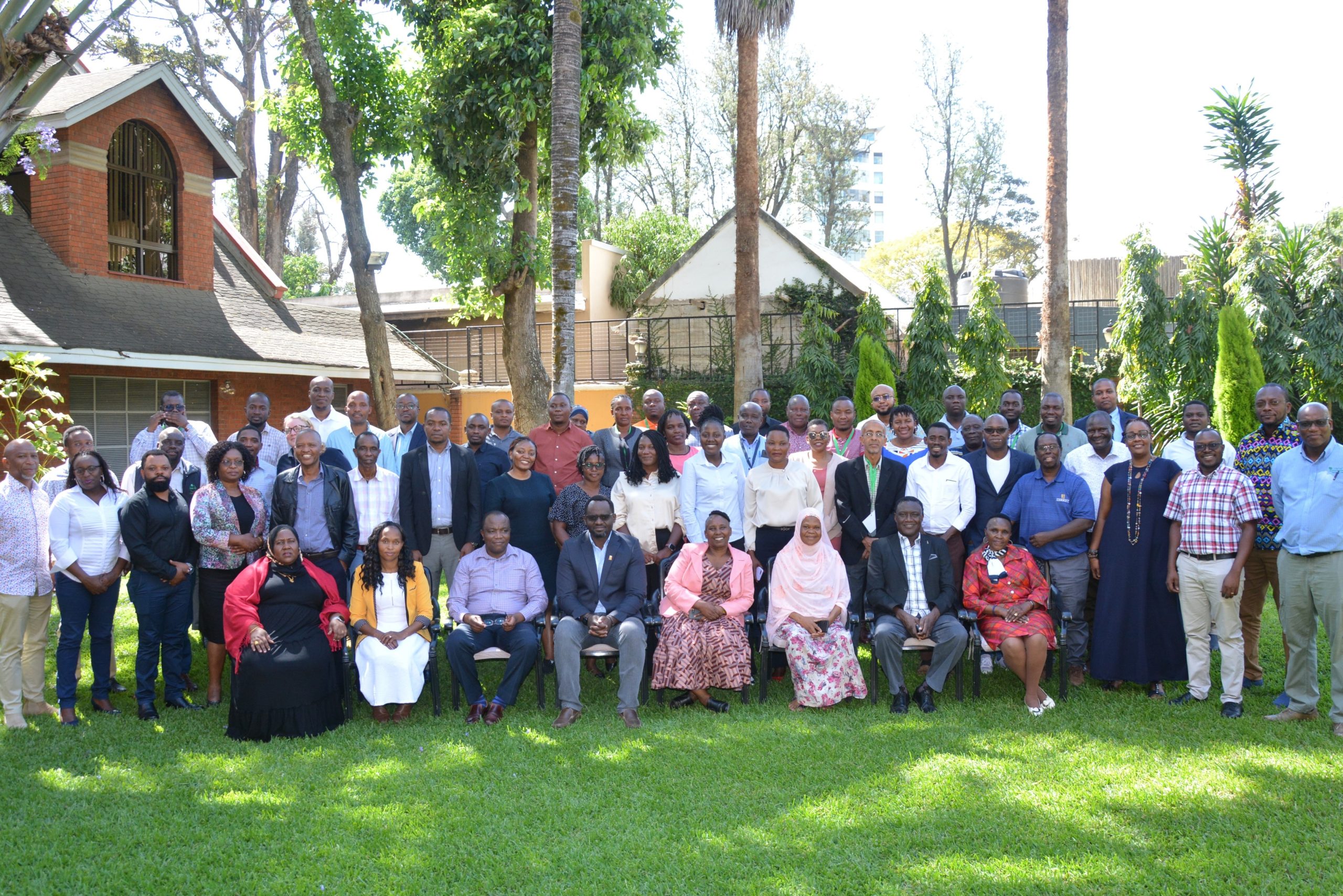
Implementing partners of the Southern Africa Accelerated Innovation Delivery Initiative (AID-I) project, or MasAgro Africa, converged in Arusha, Tanzania, for the project’s first annual review and planning meeting. The event, which brought together 58 participants from 28 allied organizations coordinating and implementing activities as part of the flagship USAID-funded initiative, provided an opportunity to review progress towards targets set at the project launch in September 2022. During the event, partners also took time to collaboratively plan for stronger implementation in the project’s second year, while discussing challenges faced in the previous year and coming up with practical solutions for these. Similar planning meetings took place in Malawi and Zambia during the same month.
Speaking during the meeting’s opening session, USAID Tanzania Mission Feed the Future Coordinator Melanie Edwards expressed excitement about the achievements of in-country partners in the past year. “The Tanzania component of the project was performing very well,” she said, “and it was exciting to see the proposals coming, meaning that the number of partners was expanding.” Edwards noted that there is still a lot more to be done by the AID-I project and a call for new partner proposals was going to be issued soon to augment ongoing work. She also emphasized the importance of expanding the number of partners and was eager to see planned activities for the second year of the project.
Speaking on behalf of the Government of Tanzania—a key partner in the AID-I initiative—Abel Mtembenji outlined the government’s priorities: increasing productivity, creating decent jobs, enhancing extension services, improving resilience for food security, and expanding market and credit access. Mtembenji was pleased that AID-I interventions aligned with these and encouraged stakeholders to coordinate their efforts with the Tanzanian government to enhance the sustainability of project activities. He further encouraged stakeholders to notify the government of their initiatives to foster collaboration during implementation. Mtembenji recognized the support from USAID, through CIMMYT and thanked all partners for their participation and contribution to agricultural development in Tanzania.
Showcasing early successes
The AID-I initiative provides targeted assistance to up to three million African smallholder farmers by improving soil health and fertilizer management; strengthening local seed systems; connecting to financial products and services; and delivering extension and advisory services. An update presentation made by SAS Program Manager Grace Mwai revealed that through its 42 partners across Malawi, Tanzania, and Zambia, AID-I had in the past 12 months set up 125 mega-demonstrations for the 2022-2023 season. Forty-two of these were managed by farmer groups themselves, with 60% managed by women.
Across all three project countries, AID-I also reached approximately 5.3 million farmers with various agronomic advisory messages through radio and television, 160,000 listeners through interactive voice response (IVR) messages. Over 9,000 farmers were linked to inputs and outputs markets, of which 40% were women. Mwai added that the project had also conducted 5,143 seed company demonstrations—of which 2,400 took place in Tanzania—and had harvested and processed 13,000 metric tons of certified maize and legume seed, which was expected to directly benefit around one million smallholder farmers across the hub.
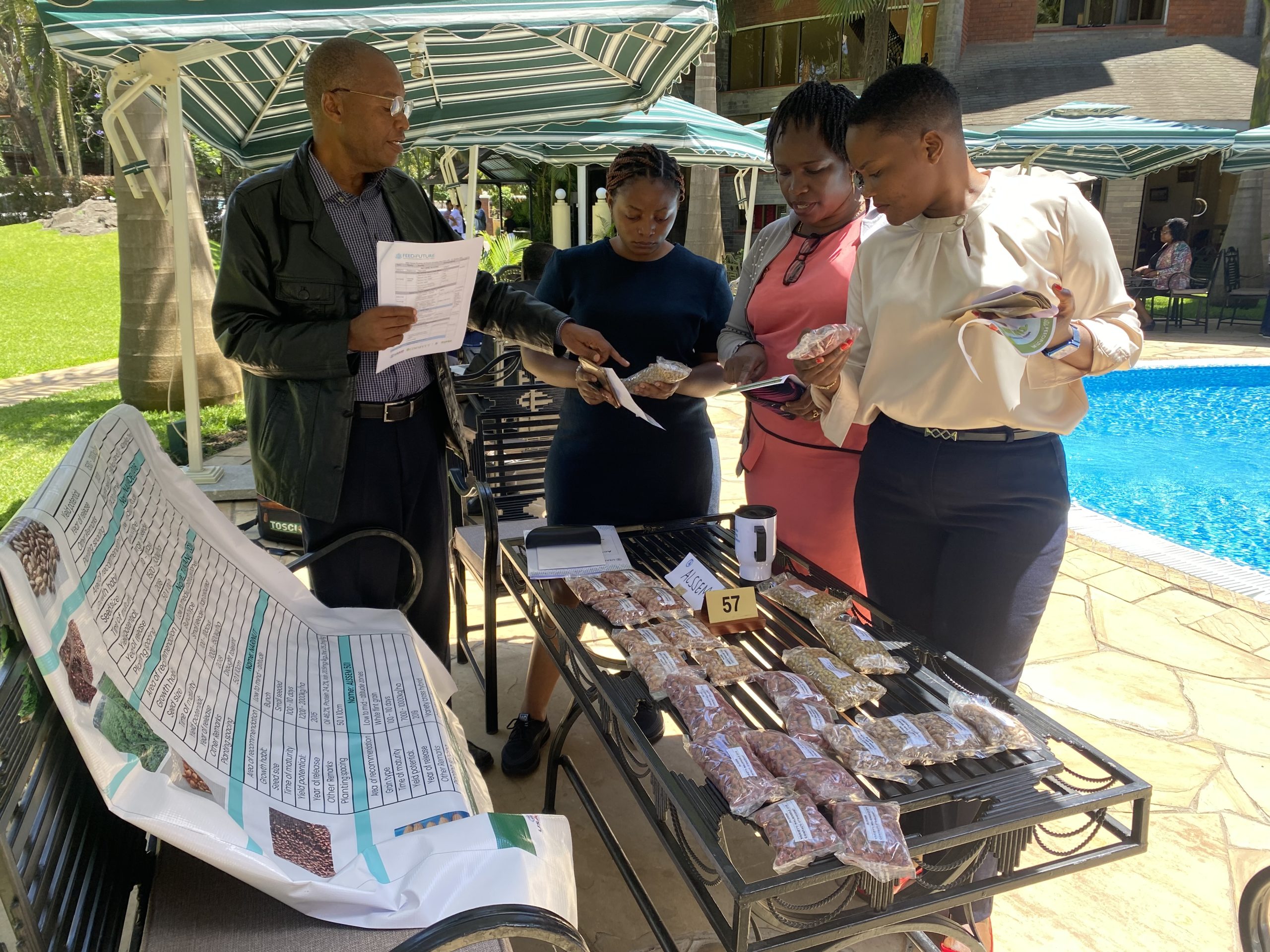
To highlight achievements from the first project year, partners showcased their products through posters and display items like seed packets during a structured session based on the World Café method. This activity allowed participants to interact and ask questions about various innovations being scaled under AID-I. More than ten partners displayed their products, and all participants at the meeting were given 15 minutes to visit other tables and share how many tons of seed they had produced and how many farmers they could reach during the season.
On the second day of the meeting, partners organized themselves into three small groups based on the three AID-I pillars—Seed Systems, Agriculture Advisories, and Market Linkages—to discuss forthcoming activities and what they hoped to do better in the coming season. The meeting concluded with discussions on issues including financial reporting, establishing and nurturing collaborations, and leveraging technology for improved project outcomes. During his closing remarks, Legume and Seed Systems Specialist under AID-I, Peter Setimela, emphasized the importance of timely proposal submission for the second year.
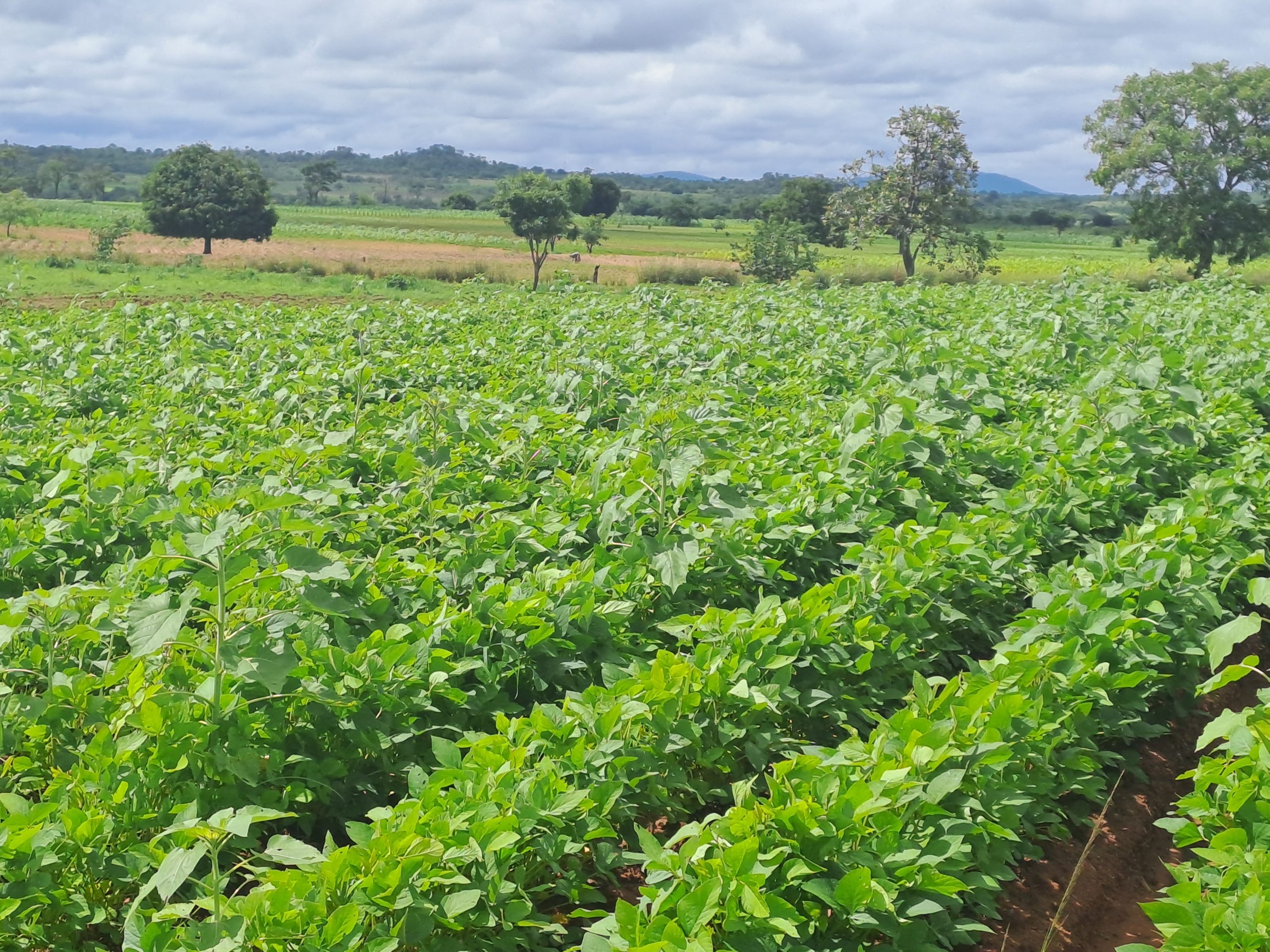
 Climate adaptation and mitigation
Climate adaptation and mitigation 